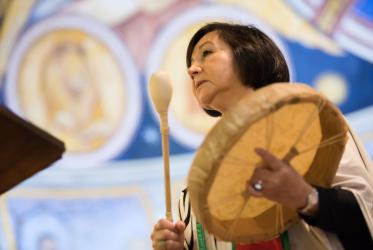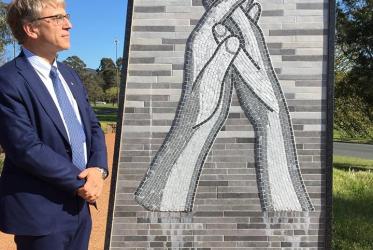Displaying 81 - 100 of 287
Advocates urge transition to low-carbon economy, clean energy
09 November 2016
Ban nuclear weapons by law next year, says historic UN vote
28 October 2016
New Executive Committee members elected in Trondheim
28 June 2016
Pilgrimage and youth
28 June 2016
USA Racial Justice Accompaniment Visit
18 April 2016
"I hit the ground running": Katalina Tahaafe-Williams
16 February 2016






